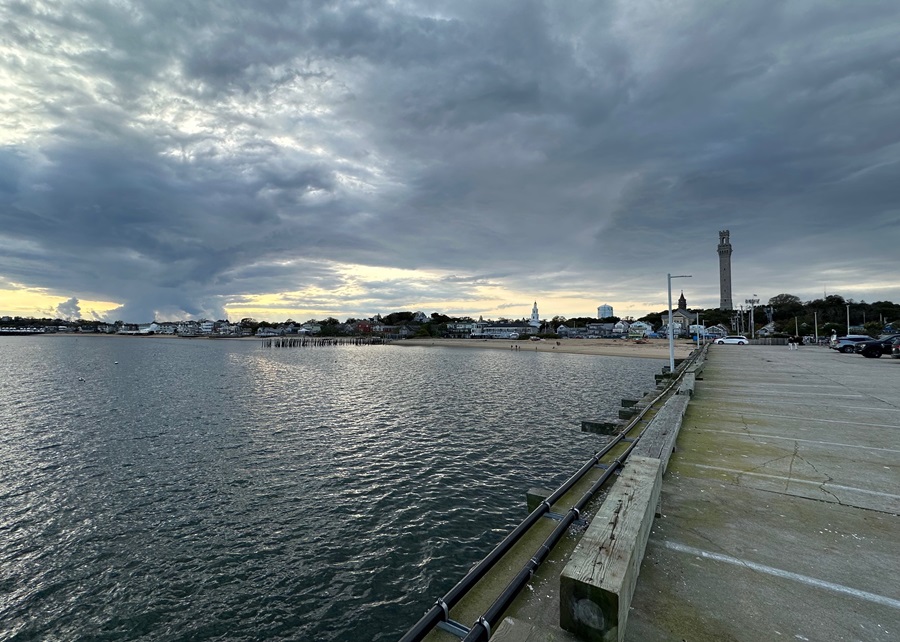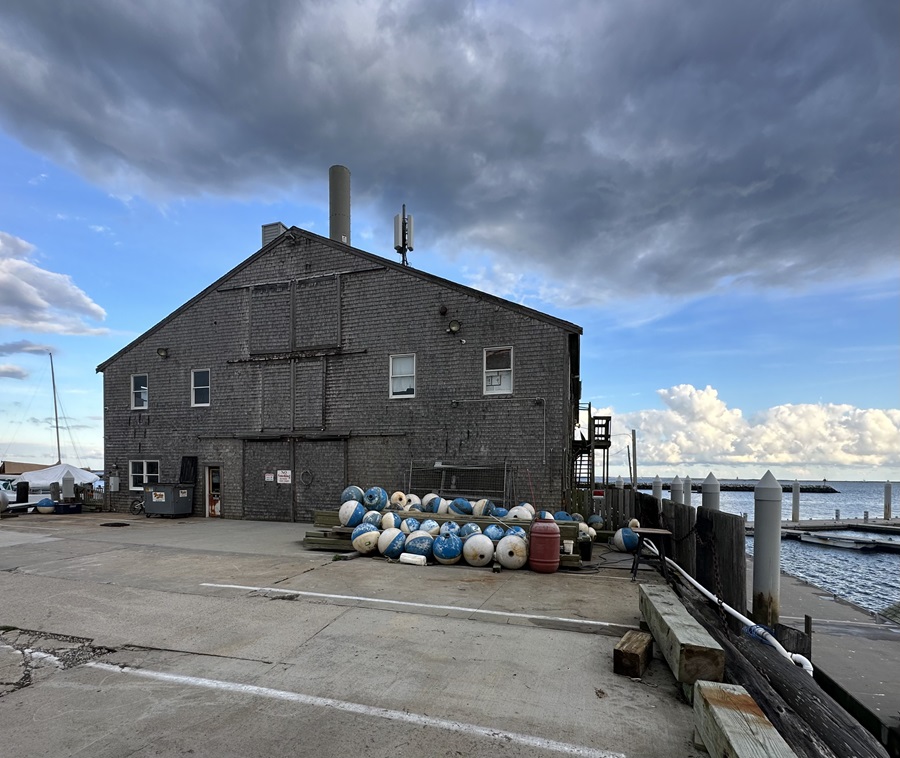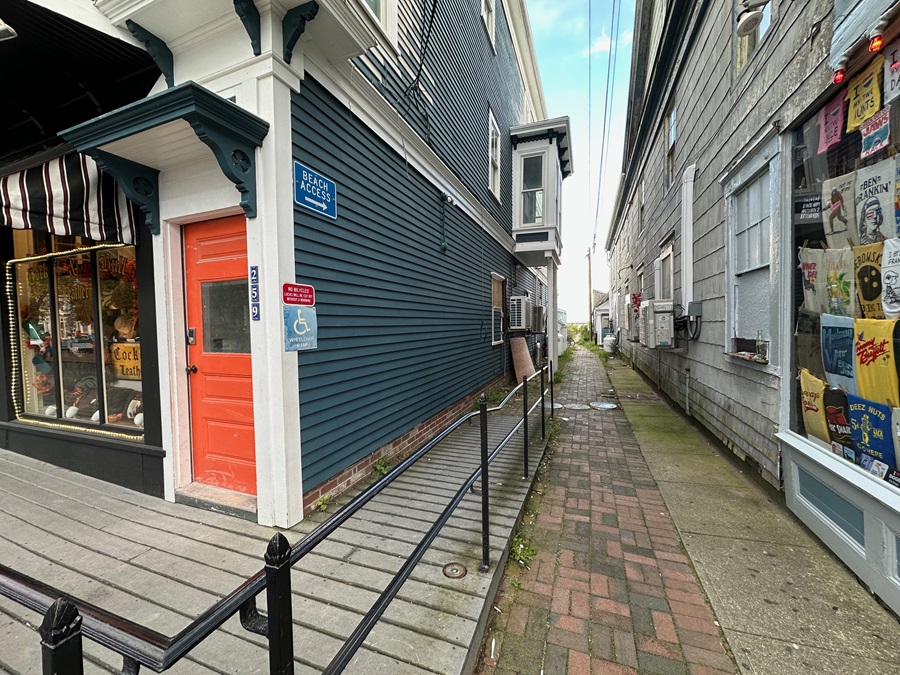PROVINCETOWN — The director and assistant director of the state Dept. of Environmental Protection’s Waterways Division joined a Nov. 30 workshop in Provincetown focused on encouraging compliance with Chapter 91, the state law that protects public access to the town’s waterfront.
There are more than 100 waterfront properties in Provincetown that need Chapter 91 licenses, said Dept. of Public Works Director Jim Vincent, because they extend onto “Commonwealth tidelands” that are technically public property. Chapter 91 licenses provide for various public access benefits in exchange for authorizing private use of historic tidelands — benefits that can include walkways to the beach or public use of amenities like restrooms.
“That’s a lot of properties, and DEP Waterways is a small program,” Vincent said, “so what we want to do is focus on the projects that are important to the town and start working on getting them into compliance.”

“As Jim mentioned, you’re looking at about half of our program here, maybe shy one person,” said Chrissy Hopps, assistant director of the Waterways Division, referring to herself, Director Daniel Padien, and Project Reviewer Alice Doyle — three members of an eight-person department. “We are limited by our staffing and workload.”
About 16 members of the harbor committee, select board, planning board, conservation commission, and Public Pier Corp. board attended the meeting, along with town staff members.
Hopps said that questions had to be couched in general terms — but several questioners were interested in the Provincetown Marina at 279 Commercial St.
Charles Lagasse, owner of the marina, signed a Chapter 91 license in February 2017 in which he agreed to install a 10-foot-wide public harbor walkway down the entire west side of the pier, around its southern tip, and part way up the east side. That license required the harbor walk to be constructed within five years and public bathrooms to be provided within two years. Neither of those improvement have been made in the nearly eight years since then.
“If someone has been given five years to deliver public benefits and those five years have expired, is there an opportunity to renegotiate what those public benefits would be?” asked harbor committee member Michela Murphy. “What’s the time frame on having them come into compliance?”
“We can’t speak to specific properties,” Hopps said. “There is a standard in the law and regulations that construction is supposed to be done in five years. A licensee can request an extension that has to be provided in writing by the department.”

“Does the DEP have a policy on how many one-year extensions they’re willing to offer?” asked a reporter for the Independent.
“You’ve asked the question I was going to ask,” said Harbormaster Don German.
“The extension is for construction,” said Hopps. “There isn’t generally an extension for public benefits. We do work with people to be reasonable, but we want to see a good faith effort to come into compliance.”
Hopps told the Independent to follow up with written questions, but the agency largely declined to answer them, except to say that “MassDEP is still reviewing the file” on the Provincetown Marina.
“Accurate and complete answers will require the Department to review the file and current site conditions,” the spokesperson wrote.

Another questioner at the meeting, conservation commission chair Alfred Famiglietti, asked if an email to the agency could be enough to trigger a site visit.
“If we’re going to do enforcement, yes, it would involve a site visit,” Hopps said. “But if we’re being notified of noncompliance, it would be helpful if you could send us photos and specify ‘These are the conditions; they’re not allowing access.’ It helps give us some context.”
The Provincetown Marina was not the only subject of interest at the Nov. 30 meeting. The town has posted a map of parcels with and without current licenses, and it shows that there are more properties without licenses than with them. Participants wanted to know how to alert the agency to properties that do not have a license at all but could be providing better public access to the waterfront.
If they receive contact information and photos of a specific unlicensed property, “The first thing we would do is send them a certified letter,” Hopps said. “This is not a threatening letter that says, ‘Shame on you,’ ” she added. “It’s ‘Let’s start a conversation and figure out how to bring the property into compliance.’ ”
Penalties and fines are a possibility if the agency agrees on a time frame and the property owner later stops cooperating, Hopps said. “But I wouldn’t begin to speak of any of those without having gone through that effort with a property owner first.”



